year in review 2019-20
In the news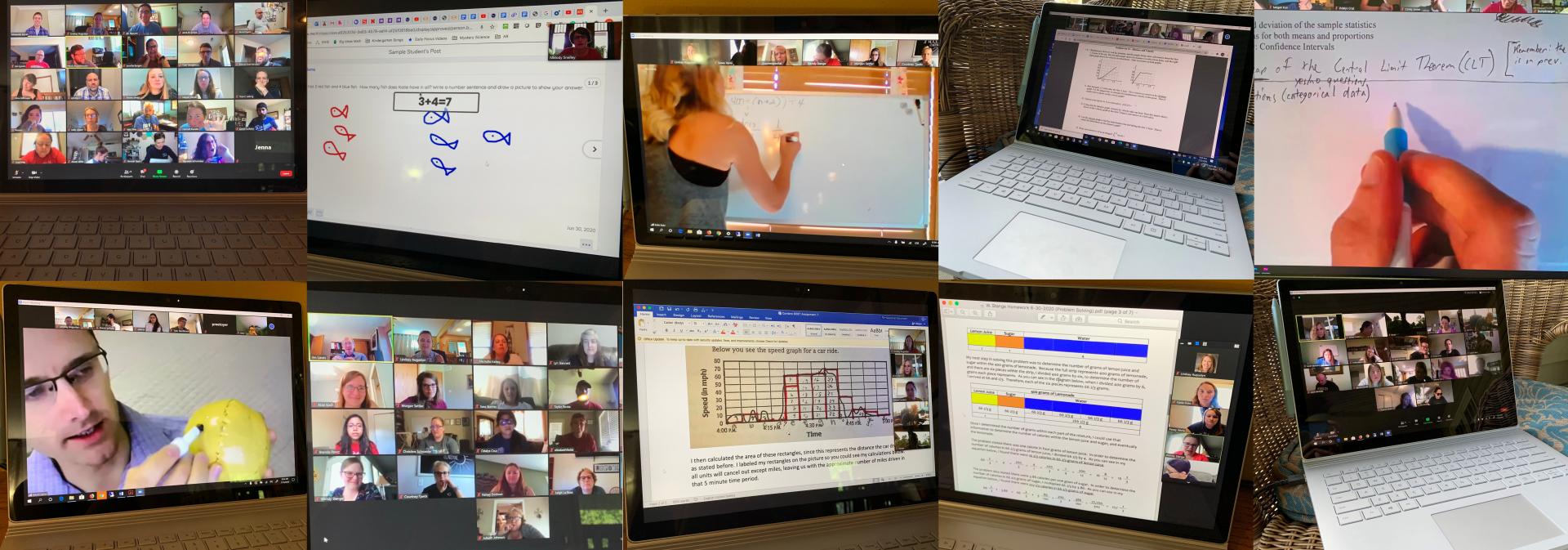
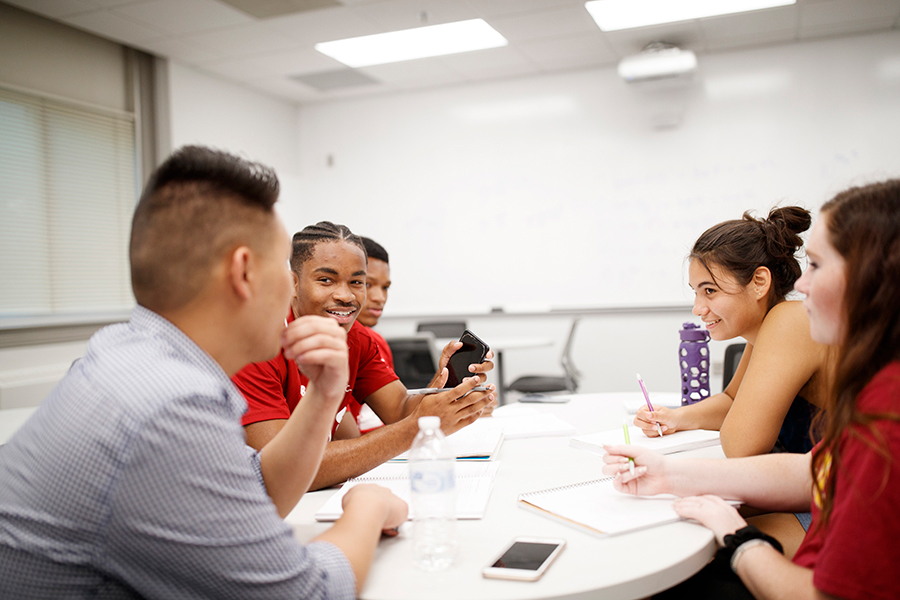
Active-learning strategies proving integral to calculus success
UNL is helping to lead a movement that focuses on using active learning to transform calculus at universities nationwide. Active-learning strategies encourage the student-led questioning, reasoning and communication of key mathematical concepts, with instructors promoting engagement and building on student thinking. Since 2016, Nebraska’s Department of Mathematics has expanded its implementation of active-learning strategies from precalculus courses into Calculus I, Calculus II and business calculus. Moreover, a team of educators, led by Wendy Smith of the Center for Science, Mathematics and Computer Education, is part of a National Science Foundation-funded effort to support nine other universities in making similar changes. The department also mirrored the active-learning setup of its precalculus classrooms by adding movable tables and chairs into five classrooms in Louise Pound Hall for calculus recitations in fall 2018. Nebraska’s own active-learning efforts began in 2012 with a task force that focused on Math 100A through Math 103. Student-success rates in those courses rose from about 65% to 80%. Read more
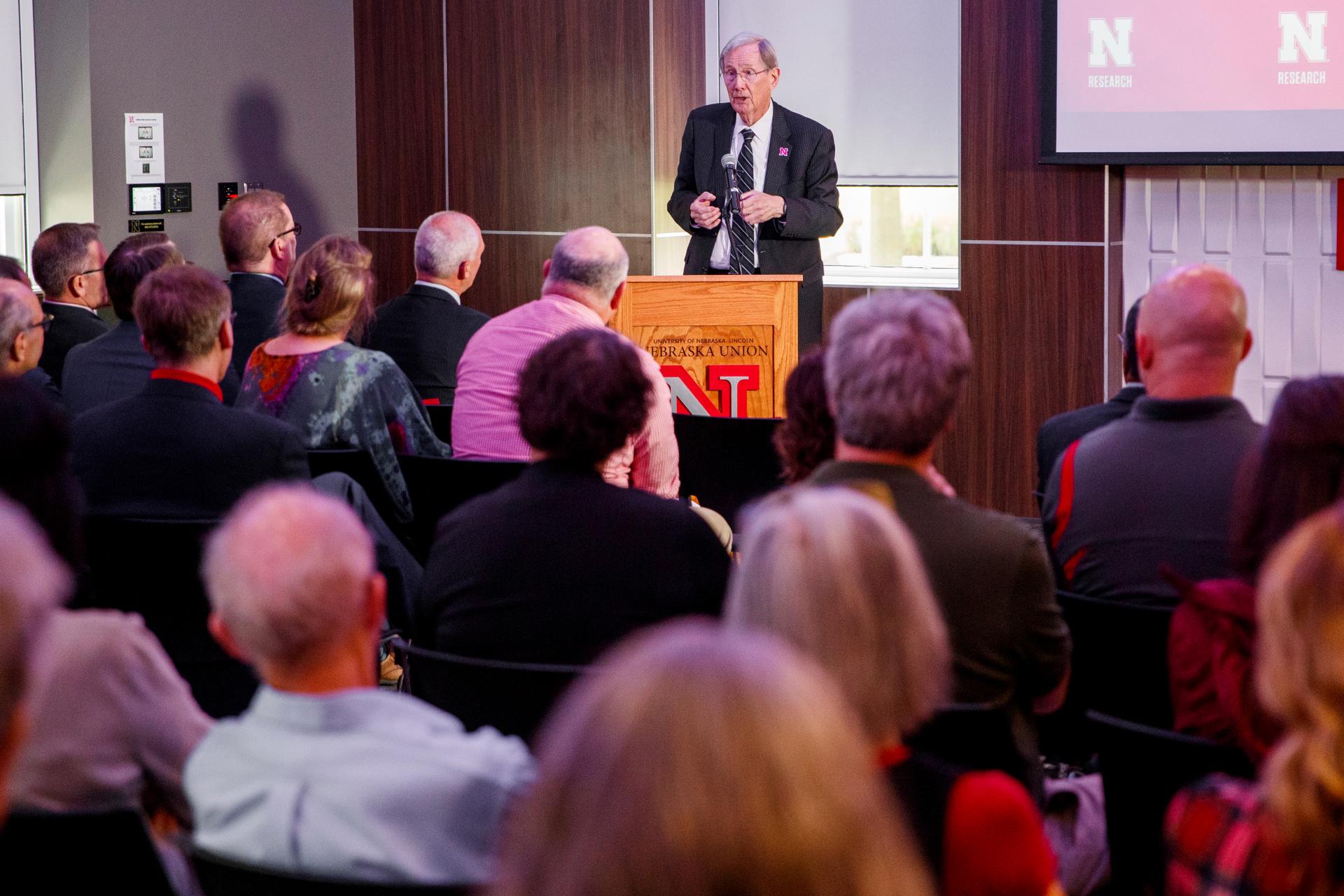
STEM CONNECT to diversify STEM workforce
UNL officials announced the institution is partnering with Southeast Community College and Western Nebraska Community College to build out the state’s STEM workforce through a new grant, STEM Career Opportunities in Nebraska: Networks, Experiential-learning and Computation Thinking. More than 120 low-income Nebraska students will benefit from the new five-year, $3.56 million grant from the National Science Foundation while they pursue careers in science, technology, engineering and math. This funding from NSF’s S-STEM initiative will provide scholarships and academic support for low-income students, specifically targeting underrepresented minorities, women, and rural and first-generation students. Students who begin at a community college in the academic-transfer program will take courses to build their strengths in math and computer science, while the students who begin at Nebraska will major in math, computer science, computer engineering or software engineering. Read more
STEM Scholar makes connections to environment
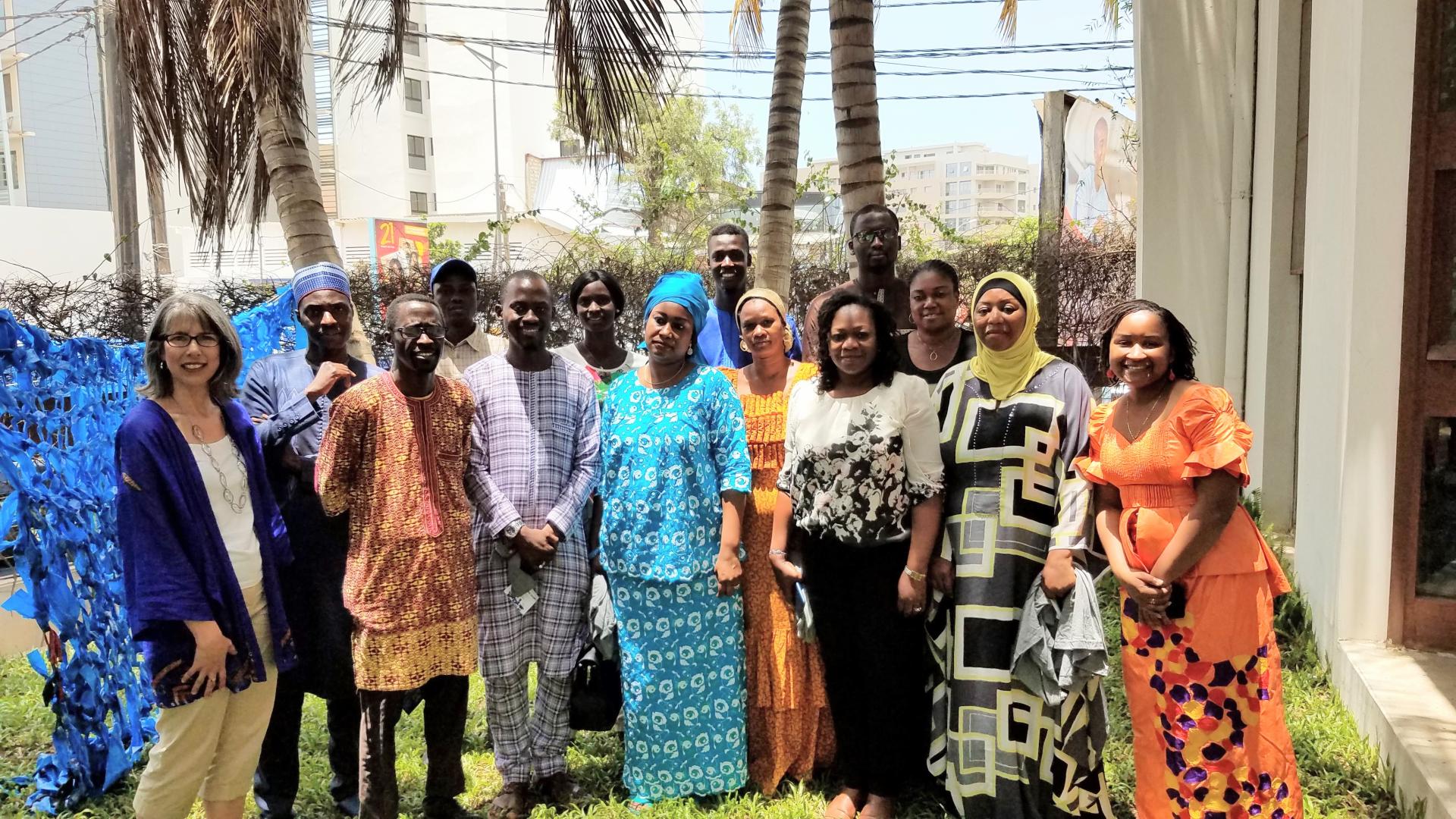
Taking Primarily Math overseas
In July of 2019, Dr. Michelle Homp had the privilege of returning to Africa to assist UNL alum Masake (Kane) Ly with the Afrimath Program headquartered in Dakar, Senegal. The Afrimath program was founded by Ly with the initiative to strengthen mathematics education in Senegal and all of Africa by fostering passion, creativity, collaboration and joy in both the learning and teaching of mathematics. The program centers on providing students and educators with engaging learning experiences to broaden the knowledge of mathematics across the country. Dr. Homp previously traveled to the country in 2018 to introduce the Primarily Math component of the Afrimath program to seven educators from the Senegalese-American Bilingual School (SABS). The first conference was a huge success; the program was met with widespread enthusiasm from Senegalese educators, and they didn’t want to wait two years to attend another convention. The program coordinators aimed to expand this opportunity to more educators across the country and decided to host another convention the following summer in 2019. On her return trip, Dr. Homp brought plenty of teaching devices, like calculators and fraction pieces, to continue developing the renowned program. With its determined board of educators and unrelenting mission to foster excitement for the subject, Afrimath has a bright future ahead. Read more
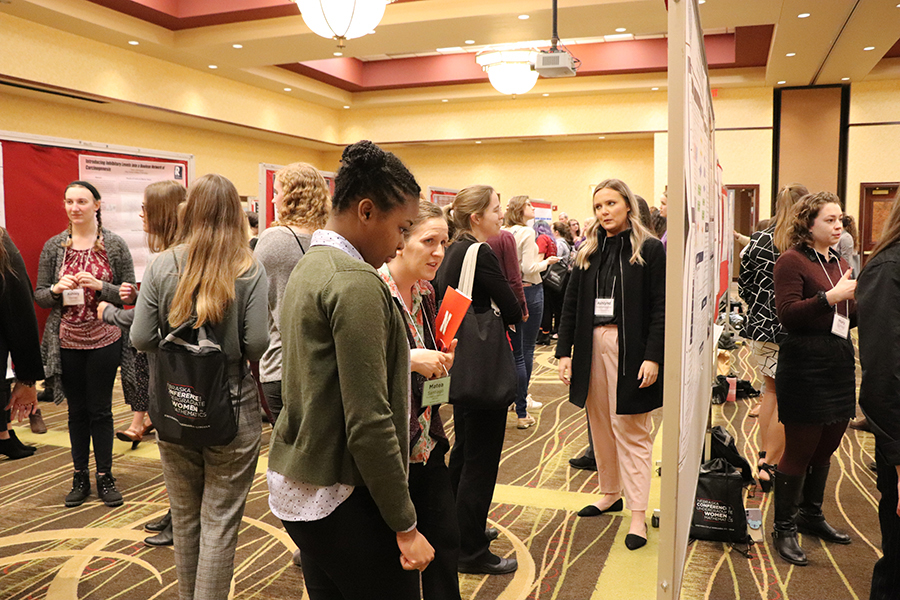
Nebraska Conference for Undergraduate Women in Mathematics
The 22nd annual Nebraska Conference for Undergraduate Women in Mathematics was held Jan. 31 to Feb. 2, 2020, in Lincoln. We hosted 238 undergraduate participants from 116 institutions and 44 faculty members. Participants came from 36 states and the District of Columbia. Fifty-six students gave 47 talks, and 72 students presented 66 posters. Plenary speakers were Dr. Margaret Cozzens (Discrete Mathematics and Theoretical Computer Science Center at Rutgers University) and Dr. Trachette L. Jackson (University of Michigan.) Invited guests were Dr. Katie Benson (University of Wisconsin-Stout), Dr. Laura Escobar (Washington University in St. Louis), Dr. Judith Hill (Oak Ridge National Laboratory), Dr. Erica Klampfl (Global Data Insights & Analytics, Ford Motor Company), Dr. Evelyn Lamb (Freelance writer), Amanda Ludes (Berkshire Hathaway Homestate Companies), Dr. Swatee Naik (National Science Foundation), Dr. Calandra Tate Moore (U.S. Department of Defense), and Simone Westermayer (Department of Homeland Security). Read more
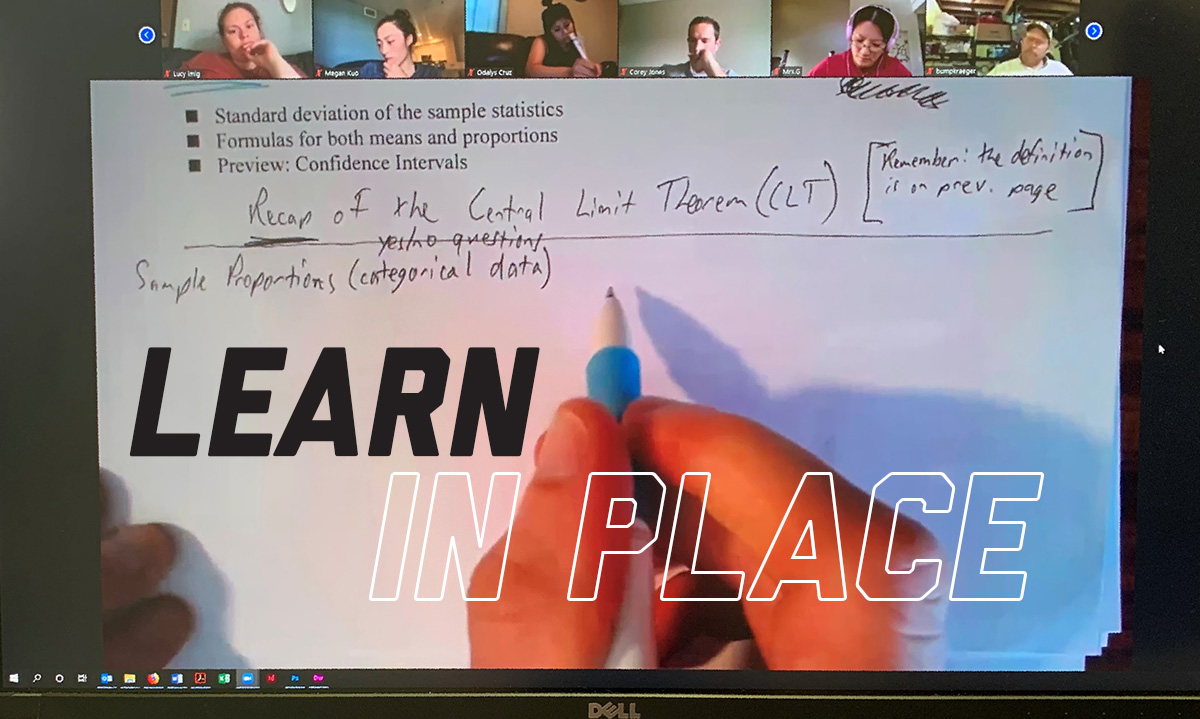
Nebraska Math and Science Summer Institutes
The summer of 2020 was all about learning in place. As all summer courses at UNL moved online, our NMSSI and associated courses were revamped to be held anywhere from two to eight weeks online, either meeting synchronously or asynchronously. NMSSI courses, grant courses and courses required for degrees welcomed 190 students in NebraskaMATH and NebraskaSCIENCE for a total of 340 registrations in 24 courses. Sixteen educators from outside of Nebraska joined 161 distinct Cornhusker State teachers on this online journey. Thank you for your support of our courses this summer.
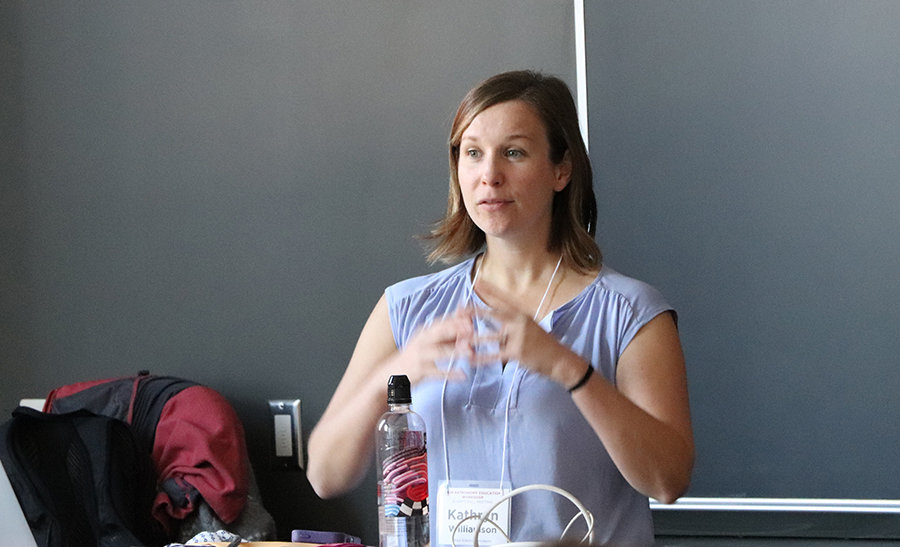
Astronomy Education Lectures and Workshop
The CSMCE and the Department of Physics and Astronomy provided two lecture events and a daylong workshop in astronomy education in October with keynotes Bob Hilborn of AAPT and Kathryn Williamson of West Virginia University. Bob Hilborn, the Associate Executive Officer for the American Association of Physics Teachers, discussed "Results of the Physics and Astronomy New Faculty Workshops". For the past 23 years, the AAPT, the American Physical Society and the American Astronomical Society have organized and run a series of Physics and Astronomy New Faculty Workshops (NFWs). The goal of the NFWs is to provide productive ways for early career faculty to enhance student learning and attitudes through interactive engagement pedagogies. Since their inception, the workshops have served over 2,500 participants and currently reach about 40% of all tenure-track hires in physics and astronomy in the U.S. The series has also expanded to include non-tenure track faculty in the NFWs, workshops for experienced faculty and for faculty at HBCUs. Based on feedback, the NFWs have evolved considerably over the years. In this talk, I will review what has been learned and the impact on higher education physics teaching and learning, including comparisons with similar workshops in chemistry, mathematics, the life sciences, and the earth sciences. This work has been supported by NSF grant 1431638. On Friday evening, Williamson gave the annual Ruckman Lecture in the Nebraska Union Auditorium. Williamson is a radio astronomer who applies radio astronomy research techniques in the classroom. She detailed how these techniques can be used to map the Milky Way Galaxy. They were both the Astronomy Education Workshop’s keynote speakers on Oct. 12.
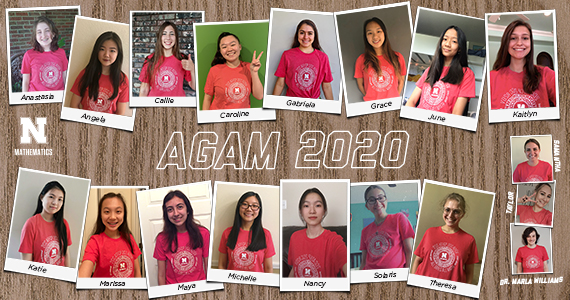
AGAM transitions to a virtual camp
Transitioning the 24th annual All Girls / All Math (now known as AGAM: Nebraska Cryptography Camp) high school summer camp to an online experience turned into a lesson in creative adaptation for the camp’s undergraduate coordinator, Samantha Wolff. Originally created by Professors Wendy Hines and Judy Walker in 1997, All Girls / All Math has grown to be a nationally renowned summer program that fosters lasting connections and talented future mathematicians. When Wolff, a senior secondary science education major graduating in December 2020, joined the AGAM staff at the beginning of this year, she was determined to help continue the program’s mission of providing high school girls with an opportunity to network and sharpen their math skills during the one-week residential camp at UNL. However, when the university announced its switch to remote operations until the fall semester, she and the coordinating staff had to rapidly shift gears. Read more
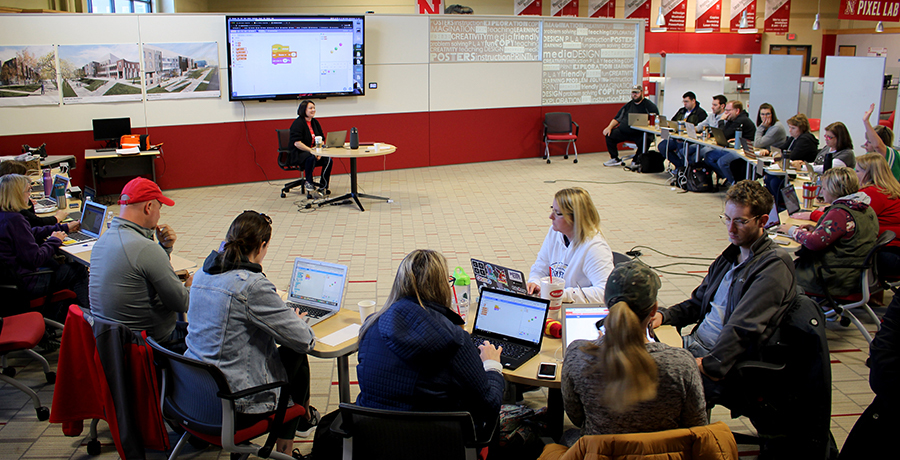
Adapt, Implement and Research (AIR@NE)
welcomes first two cohorts
Twenty-nine teachers from the Lincoln area completed the first cohort of CSForAll: Adapt, Implement, and Research at Nebraska (AIR@NE), a $2 million NSF-funded grant that examines the adaptation and implementation of a validated K-8 Computer Science curriculum in diverse school districts. Selected teachers receive tuition and fees for two graduate courses in the summer (CSCE 805T: Introduction to Computer Science I for Teachers and TEAC 851L: CS Pedagogy); $1,500 worth of computer science hardware and software; funding to travel to one conference; and $100 stipends per academic-year meeting. Twenty-four teachers were recently chosen for the second cohort, composed of teachers from Central Nebraska, and those courses were held online. AIR@NE
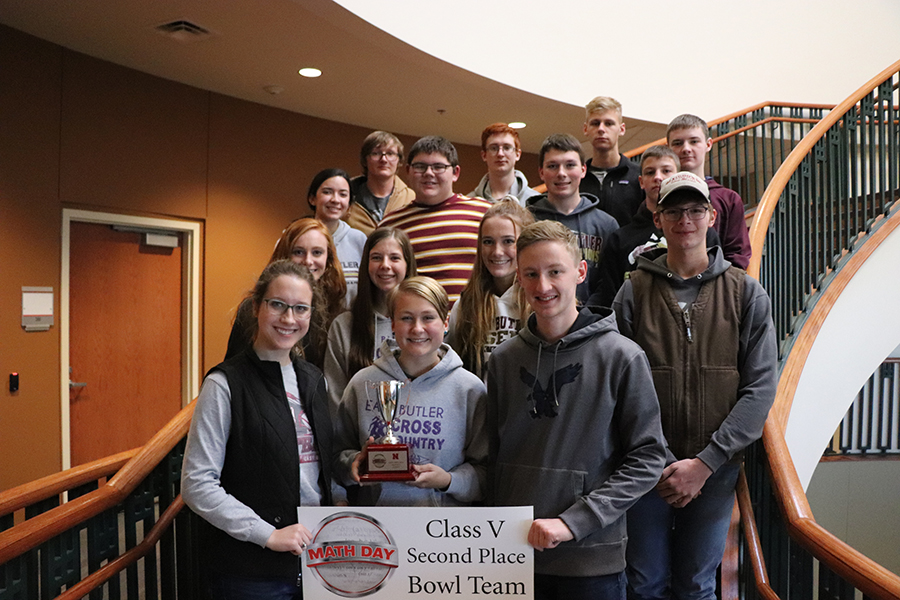
30th annual Nebraska Math Day
UNL hosted the 30th annual Math Day on Nov. 14, 2019. 1,249 students from 93 Nebraska high schools participated in the event, which is designed to spark high school students' interest in math, to encourage them to pursue a career in mathematics or the mathematical sciences and to recognize outstanding mathematical ability. This all-day event consists of the PROBE I and PROBE II individual competitions and the fast-paced Math Bowl double-elimination team competition. Students start with the multiple choice, preliminary exam called PROBE I (Problems Requiring Original and Brilliant Effort). The top five individuals receive awards and the top 25 receive certificates. The top five, four, or three scores (depending on class) from each school determine the PROBE I Team score. The top 40 students move on to take an essay exam called PROBE II. The top 10 on PROBE II are awarded a total of $34,000 in four-year scholarships to UNL. Read more
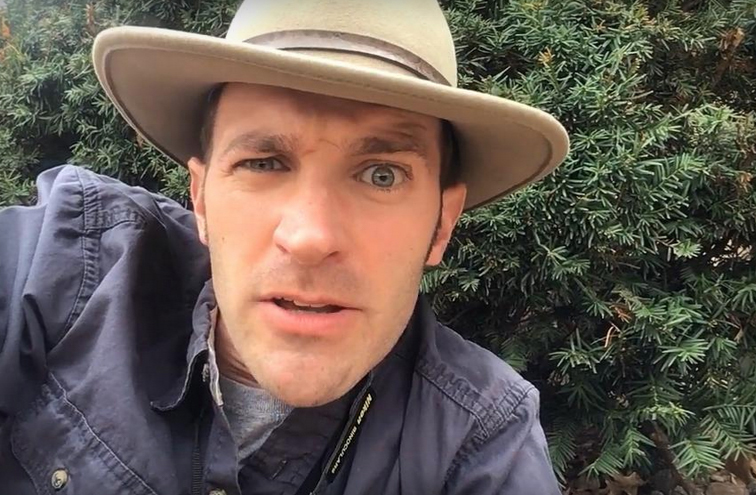
LPS CS teacher brings 'Coding with Carl'
to learning in pandemic
Matt Rinne, a computer science teacher at Pyrtle Elementary School in Lincoln believes in the value of struggling through challenges, especially for teachers approaching new topics, such as computer science. For about 20 to 30 hours a week, the computer science teacher adopts a Bill Nye-inspired identity to help his students learn this mindset with humor and creativity. His video series, “Coding with Carl,” takes a goofy look at some complicated computer science concepts, which Rinne says helps his students (and their parents) make learning fun. The videos have especially helped with distance learning in many Lincoln Public Schools classrooms. As a member of AIR@NE (Adapt, Implement, and Research at Nebraska) Rinne got more chances to develop his appreciation for challenging experiences. Funded by the National Science Foundation, AIR@NE examines the adaptation and implementation of a validated K-8 Computer Science curriculum in diverse school districts. His connection to other teachers in AIR@NE also has come into play with “Coding with Carl.” Fellow Cohort 1 computer science teachers Jason Rushing from Wysong Elementary School and Susan Prabulos from Meadow Lane Elementary School decide the weekly themes with Rinne and brainstorm with him about that week’s episode. Watch Coding with Carl
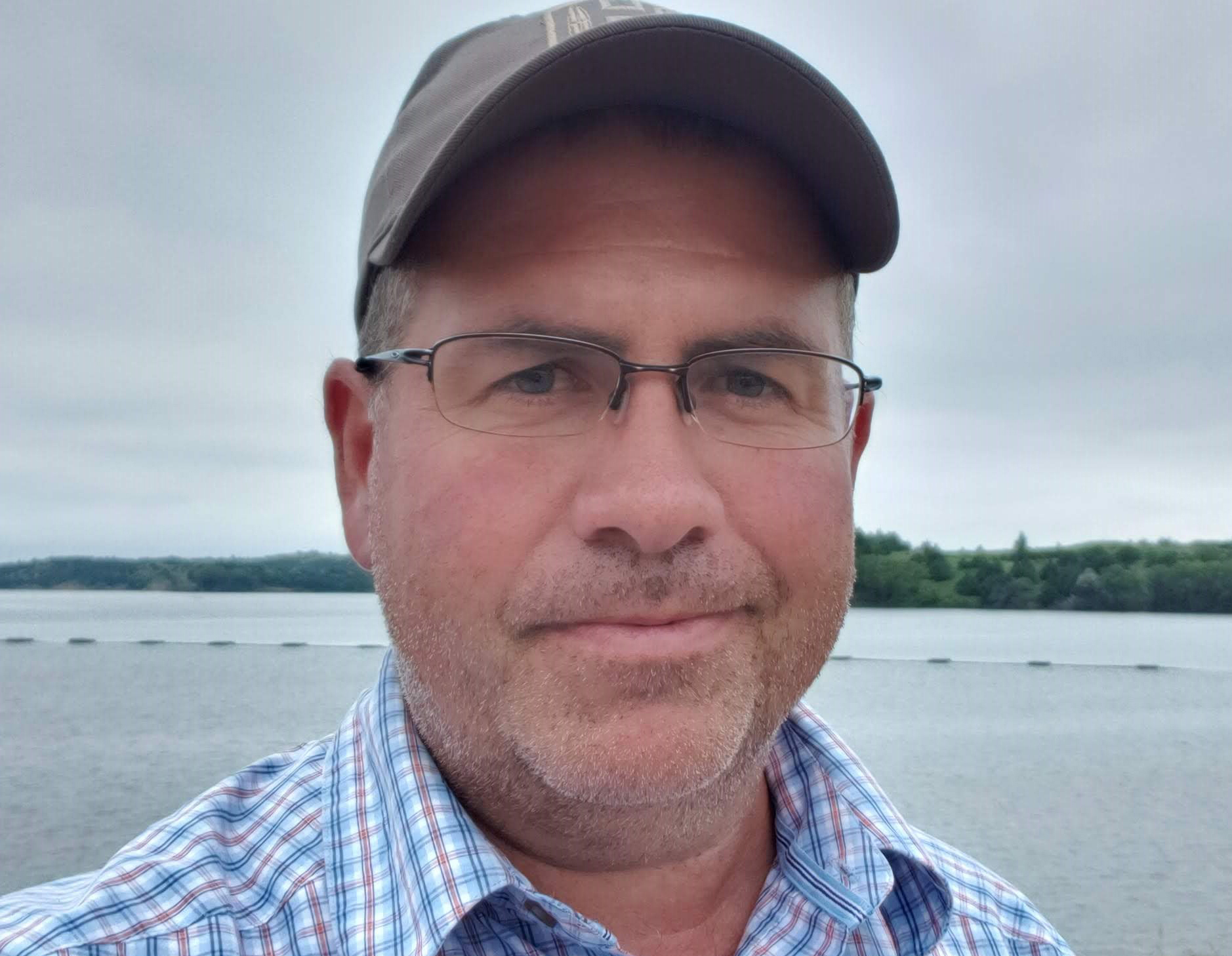
Arapahoe robotics teacher wins Lemelson-MIT Excite Award
Although known among colleagues for his creative resolve and classroom savvy, Dan Schaben would say his teaching style focuses on turning his students into the experts. Schaben’s mix of humility and willingness to try innovative methods of robotics in his rural Nebraska classroom is why he has been named a 2020-2021 Lemelson-MIT Excite Award recipient. The Excite Award annually honors 25 K-12 educators across the nation who exhibit outstanding work facilitating project-based programs in their schools. In addition to two letters of recommendation, applicants must submit a proposal for a yearlong, open-ended invention project with their students. As part of the award, Schaben will have the opportunity to participate in a virtual professional development workshop for Excite winners July 29-31, 2020, and upon completion of the course, he will receive $1,500 to kickstart his project. Read more
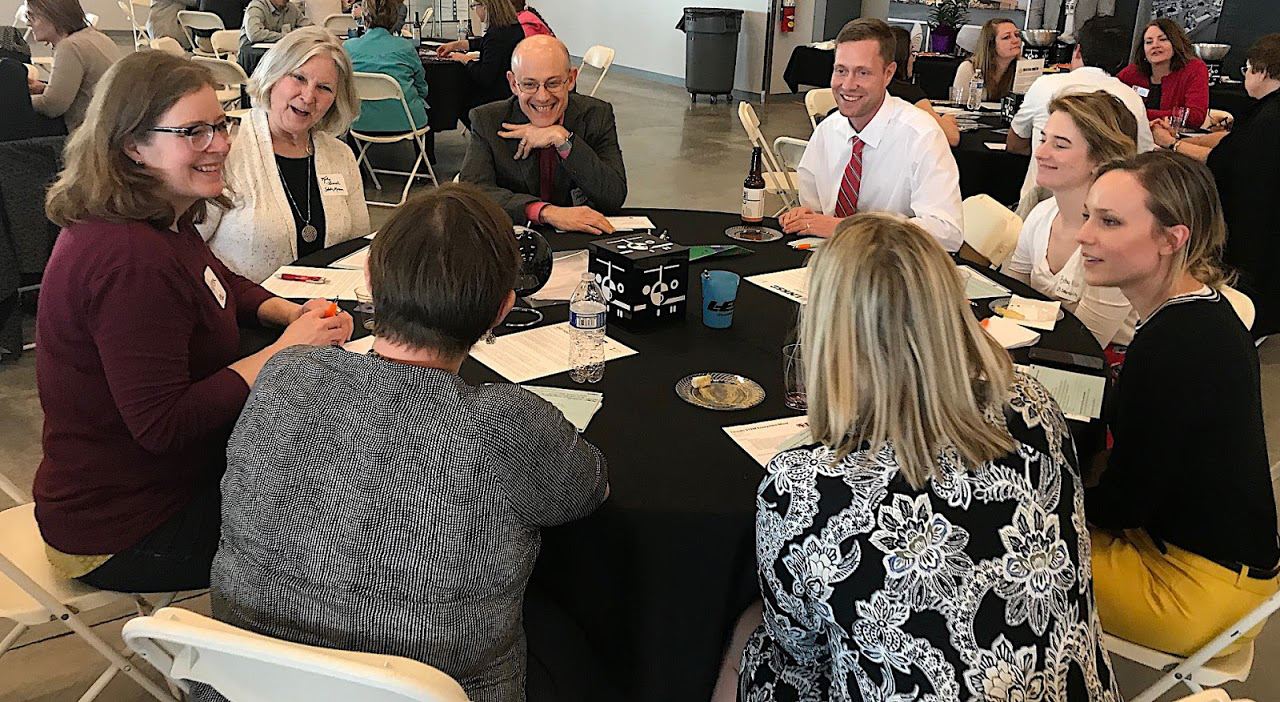
Lincoln STEM Ecosystem develops its collaborative vision
In April, the Lincoln STEM Ecosystem kicked off its newly formed initiative at Duncan Aviation, leading the charge to build successful science, technology, engineering, and math collaborations between education and industry. Since then, the group held a strategic planning session in September with its cross-sector Steering Committee, facilitated by the Teaching Institute for Excellence in STEM, and developed a collaborative mission, vision, and working groups to move forward. The Steering Committee comprises more than 20 stakeholders from all sectors of the community, and 45 Lincoln businesses and industries have been engaged in discussions. Dr. James Blake of Lincoln Public Schools (LPS) and Bryan Seck of the Lincoln Chamber of Commerce are co-chairs of the Lincoln STEM Ecosystem (LNKSE). Lincoln is one of 83 STEM Ecosystems in the nation and has a close relationship with the Ecosystem in Omaha. The federal five-year plan for STEM names “STEM Ecosystems” as the way to maintain leadership in the global economy by getting more students to graduate in the area where the jobs are. Read more

Couch wins Research in Biology Education Award
SBS and CSMCE faculty member Brian Couch is the newest winner of the Research in Biology Education Award, given annually by the National Association of Biology Teachers. The associate professor of biological sciences developed his interest in instruction as an undergrad himself, learning from a small cadre of faculty at the Colorado-based Regis University. He had multiple classes with them, and he said he wanted to emulate them. After earning a doctorate in molecular biophysics and biochemistry from Yale University, Couch directed his attention to the science of teaching the concepts he’d spent years learning. By the time he arrived at Nebraska in 2014, he was helping lead the development of a suite of assessments — Biology-Measuring Achievement and Progression in Sciences, or Bio-MAPS — to gauge learning at the beginning, middle and end of a major. Read more
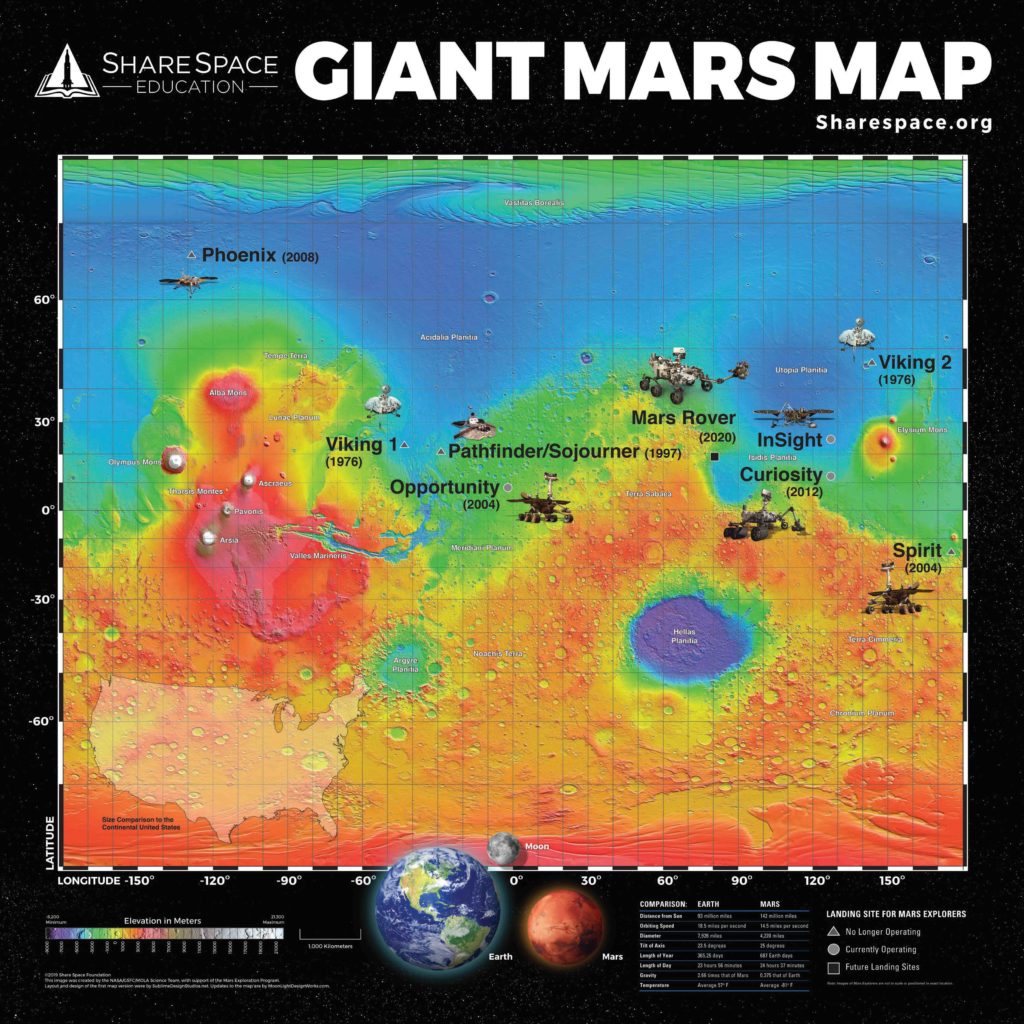
Eleven Giant Mars Maps™ awarded to Nebraska schools
Eleven Giant Mars Maps™ were awarded to Nebraska schools in 2019: Beadle Middle School in Omaha, Chase County Schools in Imperial, Crete Intermediate School, Kearney High School, Lincoln Elementary in Grand Island, Lyons-Decatur Northeast in Lyons, Mickle Middle School in Lincoln, Millard Central Middle School in Omaha, Plattsmouth Middle School, Roosevelt Elementary in Scottsbluff, and St. Bernard Catholic School in Omaha. ShareSpace’s Giant Mars Map™ is an exciting, core science standards-based, interactive educational tool that helps children develop an understanding for real-world, STEAM-based concepts using the Red Planet as the basis. Targeted for ages 8-12 years, the vinyl floor map measures 25’ x 25’ and depicts a colorful topography of Mars, as well as the landing sites of Mars rover missions. It can be used on any large surface – from a school classroom to a gymnasium to a museum lobby. The University of Nebraska at Omaha also received a Mars map. Moon Maps are also available, and in 2019 those went to Branched Oak Observatory, King Science and Technology Magnet Middle School in Omaha, and Lincoln High School. Read more
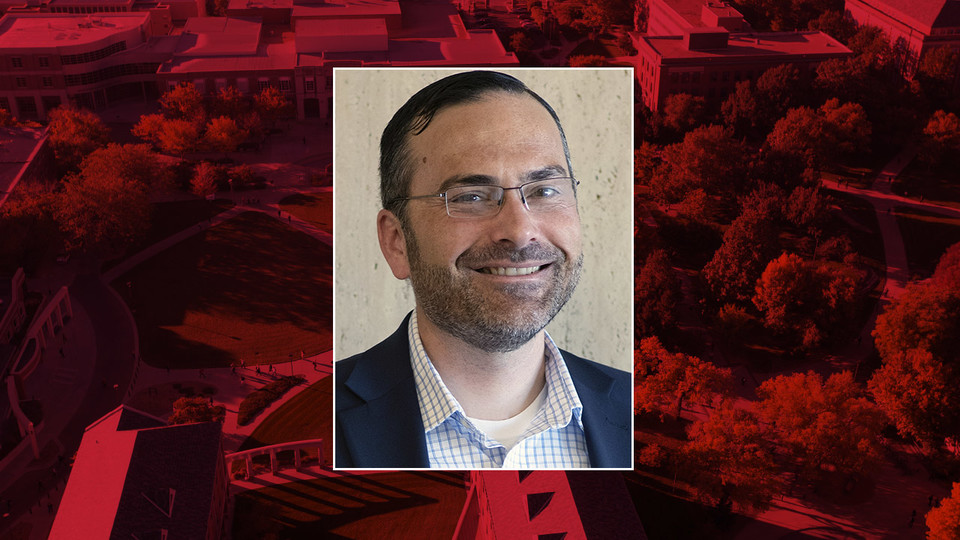
Forbes leads development of food-energy-water nexus network
In recent years, the food-energy-water nexus has received increased research attention due to the growing strains placed on all corners of it by increasing population, migration, climate change and other factors. Meanwhile, faculty from across the country whose titles may differ, but whose work centers on teaching about natural systems, have sought to connect in developing research-based educational techniques that would better students’ understanding of food-energy-water systems. This past fall, the National Science Foundation funded a five-year project to develop a new food-energy-water nexus network focused on education and education research that is headed by Cory Forbes, associate professor of science learning in the University of Nebraska–Lincoln’s School of Natural Resources and CSMCE faculty member. The $749,964 grant funds the development of the National Collaborative for Research on Food, Energy and Water Education (NC-FEW), said Forbes, its director. Now that the grant is active, Forbes said the NC-FEW team wants to build a sustainable professional community that will continue past its five-year funding period. The project will directly involve about 600 teachers and researchers from diverse institutions and across three major areas — postsecondary faculty, K-12 teachers and informal educators based at settings such as museums. Read more
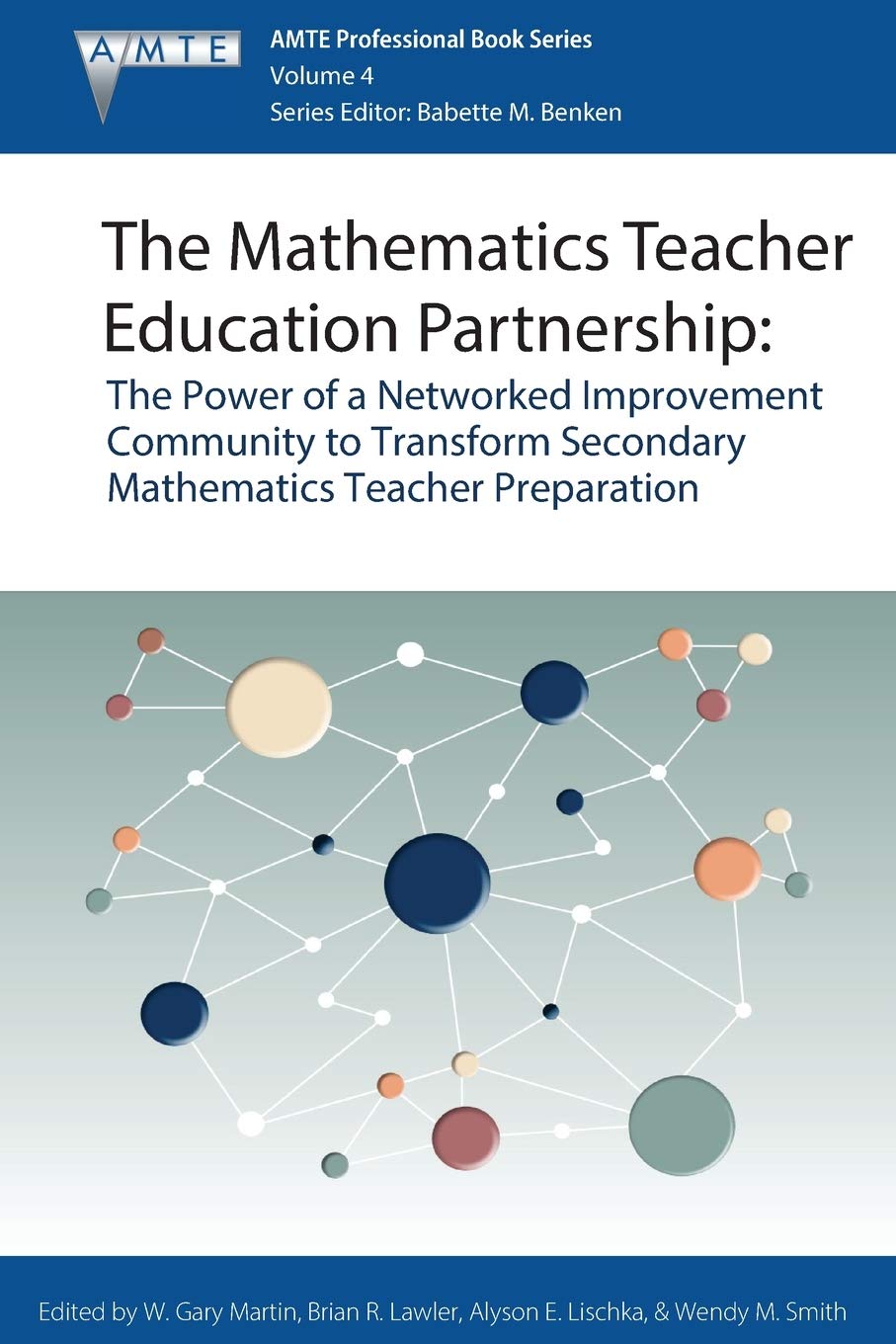
The Association of Mathematics Teacher Educators released the fourth volume of its AMTE Professional Book Series this year, which was co-edited by Dr. Wendy Smith of the Center for Science, Mathematics and Computer Education at UNL.
More Impacts
- The Association of Mathematics Teacher Educators released the fourth volume of its AMTE Professional Book Series this year, which was co-edited by Dr. Wendy Smith of the Center for Science, Mathematics and Computer Education at UNL. This book provides an overview of a body of work conducted over the past seven years related to the preparation of secondary mathematics teachers by the Mathematics Teacher Education Partnership (MTE-Partnership), a national consortium of more than 90 universities and 100 school systems. The MTE-Partnership is organized as a Networked Improvement Community (NIC), which combines the disciplined inquiry of improvement science with the power of networking to accelerate improvement by engaging a broad set of participants. Smith, CSMCE associate director and former middle school math teacher, works to provide more equitable student outcomes in mathematics and science. She leads the Active Learning Mathematics RAC and serves on the overall planning committee within the MTE-Partnership. CSMCE Assistant Director Lindsay Augustyn also contributed to the work as a copy editor and designer. Read more | Purchase this book
- With the flexibility of remote learning and the current savings in tuition and fees, a new cohort of Math in the Middle has begun. Since 2004, 237 teachers have completed the Math in the Middle program, participating in a 36-hour graduate program leading to a Master of Arts for Teachers (MAT) degree from UNL’s Department of Mathematics. The Math in the Middle program began in Summer 2020 with Math 800T: Mathematics as a Second Language and Math 802T: Functions, Algebra & Geometry. Read more
- A new resource by UNL Professor of Mathematics Glenn Ledder allows students and the general public to conduct their own experiments to learn about the population dynamics of COVID-19. Ledder has developed a mathematical module to help people study these dynamics and make their own conclusions based on real-world scenarios. The simulation embeds a simple model designed specifically for the COVID-19 pandemic into an environment where students can easily design experiments and observe possible outcomes. The model can be a source for teachers who are struggling to find relevant course material during this time that helps their students learn about this defining moment in history. Using a workbook that functions like a “sandbox,” students can define experiments with up to three scenarios and receive results about three different population percentages: people who died, people who remain susceptible and people who need to be hospitalized. The material is suitable for K-12 students, members of the general public and college students in lower level mathematics courses. Ledder has recorded two demonstration videos on the site. Teachers can email gledder@unl.edu for the answer key. Ledder also can assist any K-12 teacher individually via Zoom who wants to try this material in class as part of a pilot study. Available for download
- Four Nebraska teachers won Presidential Awards for Excellence in Mathematics and Science Teaching (PAEMST) in October 2019. This cohort of awardees represent two nomination years, one of teachers in kindergarten through 6th grade classrooms (2018) and the other in 7th through 12th grade classrooms (2017). Noyce Master Teaching Fellow Alicia Davis, of Scott Middle School in Lincoln Public Schools, was a Nebraska winner for mathematics in Grades 7–12, and Primarily Math graduate Melissa Szatko, a first-grade teacher at Indian Hill Elementary in Omaha Public Schools, was a winner for Grades K–6. Read more
- Kristy Lee, a math teacher at Marrs Middle School, is one of 15 Omaha Public Schools teachers chosen for an Alice Buffett Outstanding Teacher Award. Lee, a graduate of the OPS TLA Math in the Middle program. has been with OPS for 15 years, all of them at Marrs. She is from Omaha and has a B.S. from UNO, an M.A. from UNL, and an M.Ed. from Concordia University. The Alice Buffett Outstanding Teacher Award recognizes the achievements of skilled and dedicated educators in the Omaha Public Schools (OPS). Given to 15 teachers annually, the Award has recognized and rewarded nearly 300 teachers over the past two decades.The winners are awarded with the following: $10,000 gift, Alice Buffett Outstanding Teacher Award Medallion, and $1,000 in McDonald's gift cards.
- Congratulations to Susie Katt, Primarily Math graduate, Noyce Master Teaching Fellow and UNL doctoral student, on the publication of her new book "Productive Math Struggle: A 6-Point Action Plan for Fostering Perseverance," which she co-authored with John SanGiovanni and Kevin Dykema. Katt, of Lincoln Public Schools, is the district's K-2 math coordinator. This book guides teachers through six specific actions―including valuing, fostering, building, planning, supporting, and reflecting on struggle―to create a game plan for overcoming obstacles by sharing: actionable steps, activities, and tools for implementation; instructional tasks representative of primary/intermediate for elementary, middle for middle school, and algebra/geometry for high school; and real-world examples showcasing classroom photos and student work. Purchase this book
- Lisa Bohaty, computer science teacher at East Butler Public Schools and member of the first cohort of the AIR@NE grant, has been selected to receive a $2,000 Voya Unsung Heroes® award. This award will be used to further support her project "Let's Explore the World." This fall, she will purchase a Google Expedition VR set for her school. Voya Unsung Heroes handed out its first awards in 1996 as a way for Voya Financial to demonstrate its commitment to the education community. Grants are given to K-12 educators utilizing new teaching methods and techniques that improve learning.
- Portal Elementary 5th grade teacher, Kara Garcia, was recognized as “PLCS Staff is PLCS Great” by Papillion La Vista Community Schools on May 7. Garcia, a graduate of the Primarily Math program, is described as caring, silly, fun, energetic, positive and more. Kara was nominated by a parent that said “Ms. Garcia has helped my daughter love school again! She goes above and beyond by staying on zoom to help my daughter with math, reading or just talk about how they are doing.”
- Congratulations to Mary Beth Kilnoski, who was awarded the 5th grade Falcon Award and the first-ever Sharon Parker Award from OPS middle school R M Marrs. Kilnoski graduated with her Master of Arts for Teachers degree, as part of the Math in the Middle program, in August 2010. Her school said: "Congratulations to the amazing Ms. Kilnoski! She does so much for our team, our school and our students. This year Ms. Kilnoski was awarded the 5th grade Falcon Award and awarded the first-ever Sharon Parker Award!" The Sharon Parker award is named for a teacher who retired in May 2019 after a 50-year career, all in the Omaha Public Schools. Two weeks later, on June 5, Parker died from a heart attack. At Marrs, she focused on technology, data, scheduling, placement and curriculum development.